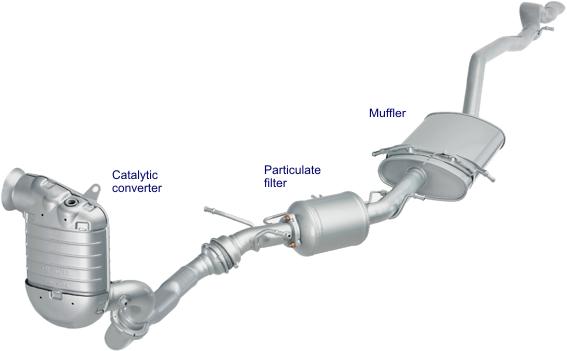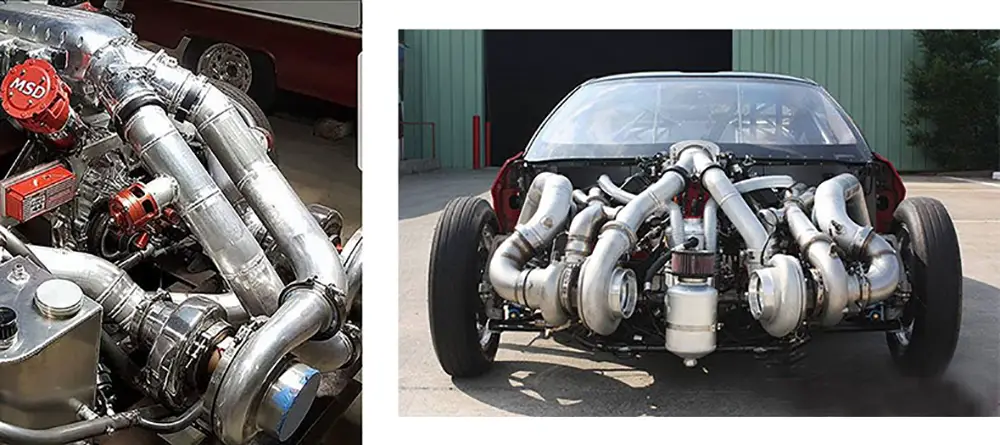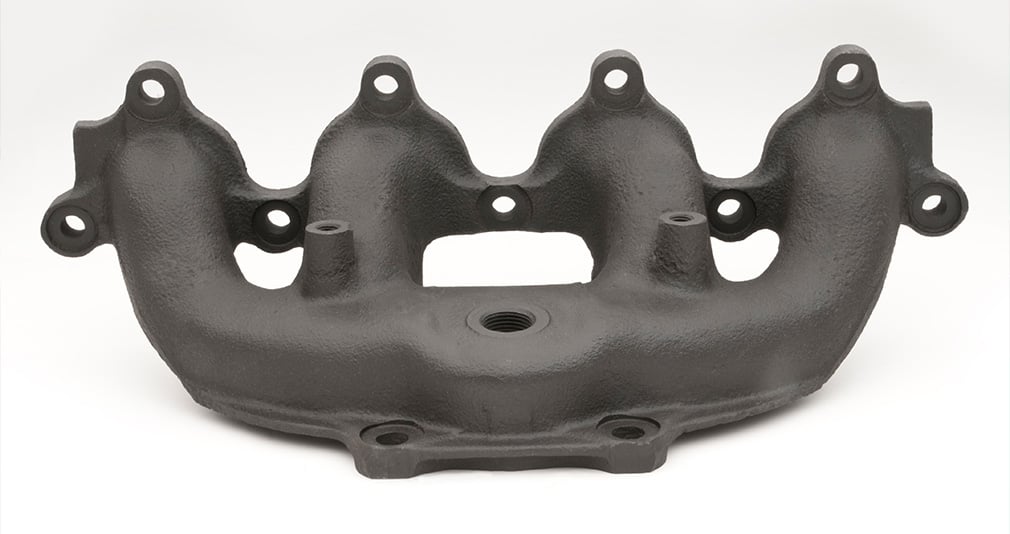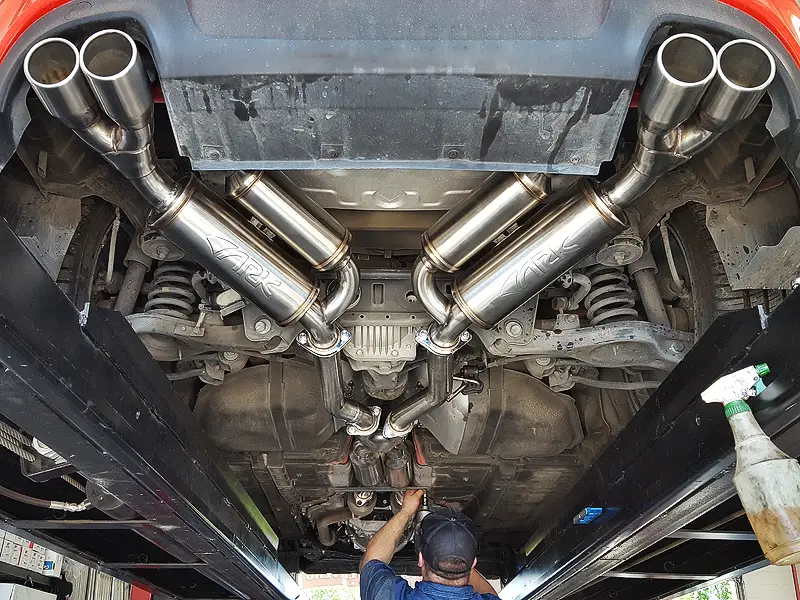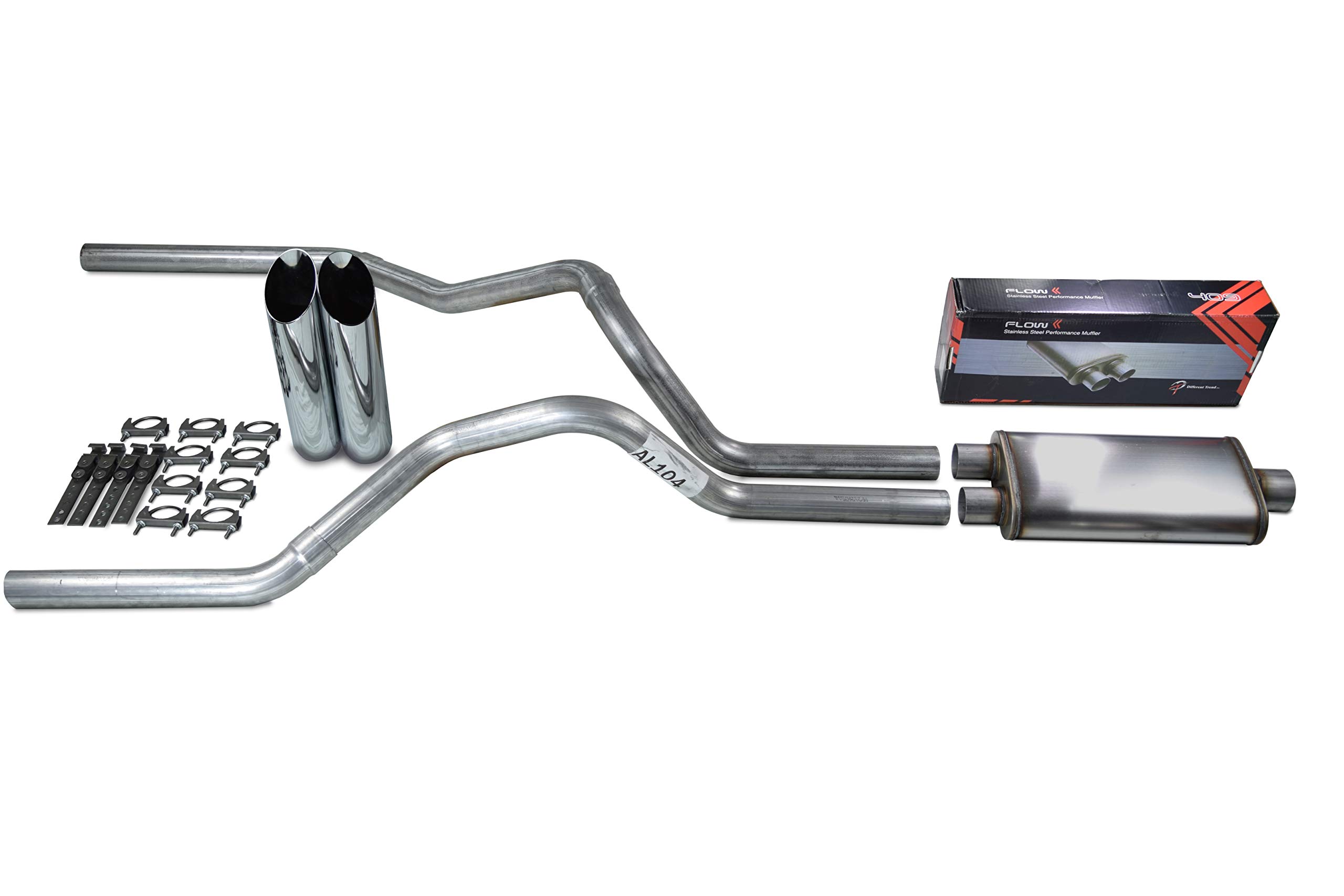Diesel exhaust systems are designed to reduce emissions and improve engine performance. They play a crucial role in minimizing environmental impact and ensuring compliance with regulations.
Diesel exhaust systems are essential components in modern vehicles, working to reduce harmful emissions and improve overall engine efficiency. By effectively filtering out pollutants and controlling exhaust flow, these systems help mitigate environmental damage and ensure compliance with strict emissions standards.
In addition to promoting cleaner air quality, diesel exhaust systems also contribute to better fuel economy and enhanced engine performance. Their intricate design and advanced technology make them vital for both vehicle functionality and environmental sustainability.
Contents
The Heart Of Diesel Performance
Diesel exhaust systems are the unsung heroes of a diesel engine, playing a crucial role in enhancing performance and efficiency. These systems are instrumental in managing emissions and optimizing engine function, making them the heart of diesel performance.
Components Of Diesel Exhaust Systems
Diesel exhaust systems are composed of various key components that work together to manage emissions and optimize engine performance. Some of the main components include:
- Exhaust Manifold
- Catalytic Converter
- Diesel Particulate Filter (DPF)
- Exhaust Gas Recirculation (EGR) Valve
- Exhaust Pipes
Impact On Engine Efficiency
The diesel exhaust system plays a critical role in enhancing engine efficiency. It helps to reduce harmful emissions, optimize fuel combustion, and improve overall engine performance. By effectively managing exhaust gases, the system contributes to better fuel economy and increased power output.
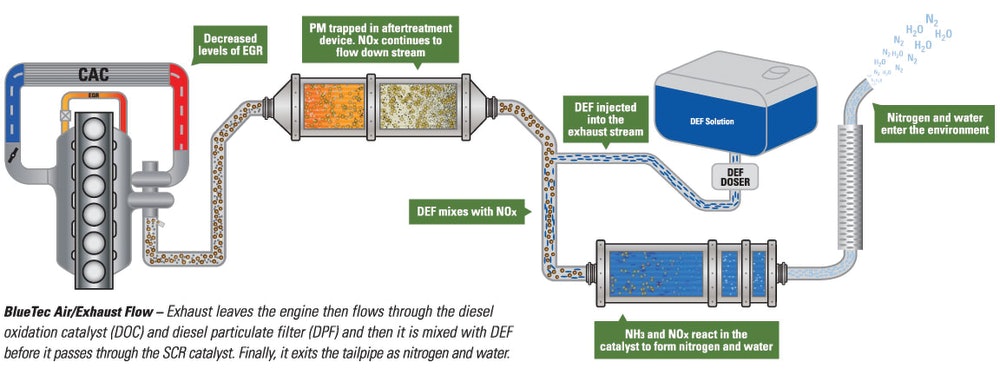
Credit: www.forconstructionpros.com
Upgrading For Optimal Output
When it comes to maximizing the performance and efficiency of the diesel engine, upgrading exhaust system is a key consideration. A well-designed and properly installed exhaust system can significantly enhance the overall output of your vehicle. In this section, we will explore the important factors to consider when choosing the right exhaust system and provide some valuable installation tips and tricks to ensure optimal results.
Choosing The Right Exhaust System
When selecting an exhaust system for your diesel engine, there are several factors to keep in mind. Here are some key considerations:
- Performance: Look for an exhaust system that is specifically designed to improve performance. This includes features such as mandrel-bent tubing, larger diameter pipes, and high-flow mufflers or catalytic converters.
- Material: Stainless steel exhaust systems are highly recommended due to their durability and resistance to corrosion. They are built to withstand the extreme temperatures and harsh conditions typically encountered by diesel engines.
- Noise Level: Consider the desired noise level for your vehicle. Some exhaust systems are designed to provide a more aggressive sound, while others focus on reducing noise levels for a quieter ride.
- Emissions Compliance: Ensure that the exhaust system you choose complies with local emissions regulations. This is especially important if you live in an area with strict emissions standards.
Installation Tips And Tricks
Proper installation is crucial to achieving optimal output from your upgraded exhaust system. Here are some installation tips and tricks to keep in mind:
- Professional Installation: For the best results, it is recommended to have your exhaust system installed by a professional who has experience working with diesel engines. They will ensure proper fitment and alignment.
- Inspect and Clean: Before installing the new exhaust system, thoroughly inspect and clean the mounting points and connections. This will help prevent any issues that may arise due to debris or corrosion.
- Secure Mounting: Ensure that the exhaust system is securely mounted to the vehicle’s frame. This will prevent excessive movement, which can lead to premature wear and potential damage.
- Check for Leaks: After installation, carefully inspect the entire exhaust system for any signs of leaks. This includes checking the connections, joints, and welds. Address any leaks promptly to avoid any negative impact on performance.
- Regular Maintenance: To prolong the life of your exhaust system and maintain optimal performance, it is important to perform regular maintenance. This includes cleaning, inspecting for damage, and addressing any issues promptly.
Maintenance And Troubleshooting
Maintaining and troubleshooting diesel exhaust systems requires regular attention and expertise. By addressing issues promptly and conducting routine maintenance, you can ensure optimal performance and reduce the risk of costly repairs. Stay on top of cleaning filters, inspecting components, and addressing any warning signs to keep your diesel exhaust system running smoothly.
Regular Maintenance Schedule
Regular maintenance is key to ensuring optimal performance of diesel exhaust systems. Here’s a simple schedule:
– Clean exhaust pipes every 6 months.
– Check clamps and hangers for tightness monthly.
– Inspect mufflers and filters every 3 months.
Common Issues And Solutions
Identifying and resolving issues promptly can prevent costly repairs. Here are some common problems:
– Excessive smoke: Check air filters and fuel quality.
– Loud noises: Inspect for leaks or damaged components.
– Poor performance: Clean or replace clogged filters.
Remember to refer to your manual for specific maintenance instructions.
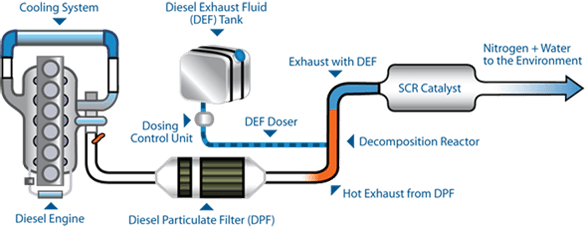
Credit: www.trufitexhaust.com.au
Frequently Asked Questions
Here are some FAQs about diesel exhaust system –
Is It Worth Putting An Exhaust On A Diesel?
Yes, it is worth putting an exhaust on a diesel. Upgrading the exhaust system can improve fuel efficiency, increase horsepower and torque, and enhance the overall performance of the vehicle. It also provides a more aggressive sound and reduces emissions.
A quality exhaust system can be a great investment for diesel vehicle owners.
How Does A Diesel Exhaust System Work?
A diesel exhaust system works by filtering out harmful particles and gases from the engine’s emissions before releasing them into the air. The system typically includes a diesel particulate filter, an oxidation catalyst, and a selective catalytic reduction system. These components work together to reduce emissions and improve air quality.
What Are The Three Types Of Exhaust System?
The three types of exhaust systems are single exit, dual exit, and high-performance. These systems can enhance vehicle performance and aesthetics.
Why Are Diesel Emissions Bad?
Diesel emissions are bad because they release harmful pollutants like nitrogen oxides and particulate matter. These pollutants can cause respiratory problems, worsen existing health conditions, and contribute to air pollution. Reducing diesel emissions is crucial for public health and environmental protection.
What Are Diesel Exhaust Systems Made Of?
Diesel exhaust systems are typically made of pipes, a muffler, a resonator, and tailpipe.
Conclusion
Investing in a quality diesel exhaust system is crucial for vehicle performance and environmental impact. With proper maintenance and installation, these systems can improve fuel efficiency and reduce harmful emissions. By understanding the importance of these systems, vehicle owners can make informed decisions to enhance both their driving experience and the environment.

